When a crisis strikes, being stocked up on OTC medications and prescriptions gives you a little sense of security. Yet these are finite supplies that will dwindle during a prolonged crisis. Also, taking expired medications might be dangerous!
Adding medicinal herbs to your preparedness strategy gives you a sustainable source that can help stretch your other medications. In some cases, the right medicinal herb might even have life-saving value.
Of course, there’s a lot of misinformation out there, and supplement companies are quick to make overly bold claims in hopes of getting you to buy the dehydrated versions of medicinal herbs that they sell.
So, I thought it might help to take a closer look at the kind of medicinal herbs you can grow and store yourself. A few of the following might even help stretch your medical supplies through whatever the next crisis brings.
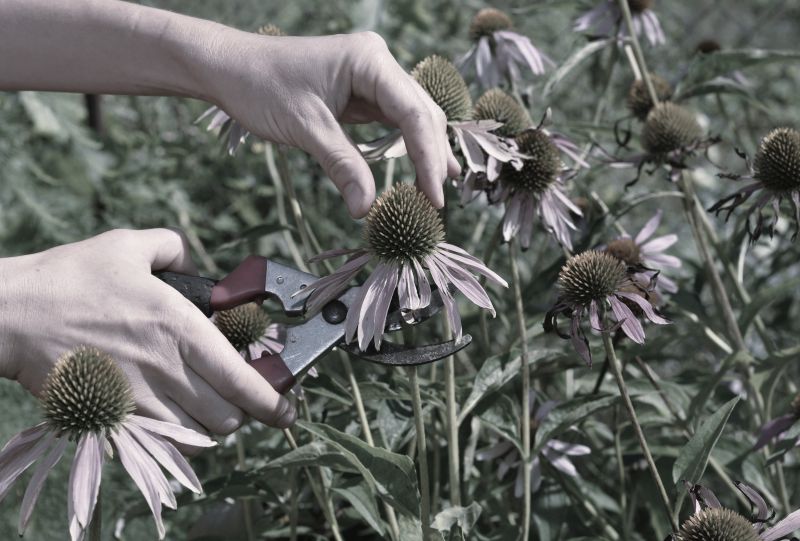 Echinacea
Echinacea
Echinacea is one of the best medicinal herbs to help you get through a crisis. Most of its health benefits are related to its ability to boost the immune system and fight infections. It also has some anti-inflammatory properties that can help treat sprains and minor mechanical injuries.
Echinacea’s ability to boost the immune system can help fight the common cold and flu. A growing body of research suggests that echinacea may have mild antibacterial and antiviral effects. This can help reduce the severity and duration of symptoms.
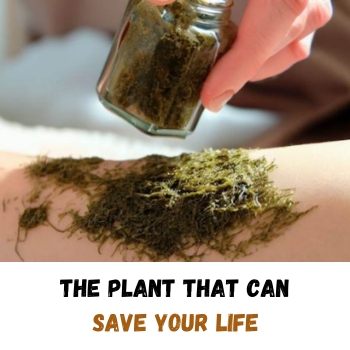 You can even tap into these antibacterial properties to help treat cuts and scrapes. This involves making creams or salves that can prevent infection while also reducing swelling and promoting the healing process.
You can even tap into these antibacterial properties to help treat cuts and scrapes. This involves making creams or salves that can prevent infection while also reducing swelling and promoting the healing process.
The anti-inflammatory properties of echinacea help reduce minor inflammation. This can help minimize swelling after something like a minor ankle sprain or help manage conditions like arthritis. Inflammation-related skin irritations can also be easier to manage when supplemented with echinacea.
Echinacea is rich in antioxidants, particularly in its fresh form. It can help protect cells from oxidative stress, helping combat chronic diseases and supporting overall health.
Echinacea Growing Tip
The good news is that echinacea is relatively easy to grow. However, it does need to be planted in full sun to develop its maximum medicinal potential. You can even companion plant it with tomatoes and peppers in your vegetable garden.
 Turmeric
Turmeric
Turmeric has powerful anti-inflammatory properties due to the medicinal compound, curcumin. This makes it useful for managing conditions like arthritis, muscle pain, and joint stiffness.
Turmeric can improve digestion and reduce symptoms like bloating and gas. It can also be beneficial for people with conditions like irritable bowel syndrome (IBS).
A growing body of research suggests that the curcumin in turmeric can help stabilize blood sugar levels. While it can’t replace the effects of insulin injection for managing diabetes, it might be able to help someone with prediabetes manage their blood sugars if their prescription medications run out.
The curcumin in turmeric can also play a role in maintaining good heart health. Research has found it can improve the endothelial function of the thin membrane lining the heart and blood vessels and can reduce the risk of clotting.
It could help regulate blood pressure and reduce heart disease risk for someone who takes blood thinners or blood pressure medications and runs out of their prescriptions. However, it’s not a perfect replacement for prescription medications.
Turmeric Growing Tip
Turmeric only grows in warm regions, with a fair amount of humidity and rainfall. However, you might be able to grow it in northern climes in a 5-gallon bucket. Then you’ll need to bring that bucket indoors in the cooler months of the year to continue growing in a sunny window.
 Ginger
Ginger
Ginger has many medicinal health benefits, that have helped make it a cornerstone of many traditional eastern medicines. This is largely due to its high concentration of gingerol, which has strong anti-inflammatory and antioxidant properties.
Ginger’s ability to reduce inflammation can help manage joint pain, arthritis, and even muscle soreness. During a prolonged crisis, you can even use ginger root as a homeopathic replacement for non-steroidal anti-inflammatory drugs (NSAIDs).
One of the things I love about ginger is its ability to aid digestion. It stimulates digestive enzymes, that can help reduce bloating, gas, and even constipation. Fresh ginger tea is particularly beneficial for soothing an upset stomach, as well as helping reduce feelings of nausea.
Ginger can even help improve insulin sensitivity which could come in handy if someone in your group needs help managing symptoms of diabetes and their prescription medications run out.
Ginger Growing Tip
Unfortunately, ginger really does need a sub-tropical climate to grow best. I’ve played with this a lot over the years, and it is possible to grow ginger in a 5-gallon pot. Just be sure the ginger pot is brought indoors anytime the nighttime temperatures are forecasted to drop below 50 degrees.
It takes a full year to establish a single ginger plant. Then with careful harvesting, you can get small sections of ginger root every 6 to 9 months. Ideally, this harvesting would happen in early summer to let the plant bounce back through the peak of the northern growing season.
 Peppermint
Peppermint
The medicinal benefits of peppermint can be a real godsend in a crisis. The primary ingredient menthol can be used in different ways to treat different conditions or help manage symptoms.
This starts with peppermint’s ability to help with digestive tissues including indigestion, gas, and bloating. Menthol helps relax muscles in the digestive tract, making it helpful for easing discomfort from conditions like irritable bowel syndrome.
The strong menthol aroma of peppermint can also help clear sinuses and soothe the respiratory system. This could be as simple as sipping on peppermint tea or a peppermint steam inhalation treatment to relieve symptoms of colds, allergies, and sinus congestion.
A growing body of research has found that the cooling effect of menthol in peppermint can relieve headaches and tension. Applying peppermint oil diluted with a carrier oil to the temples is a popular home remedy for headaches. It can also help relax sore muscles and ease tension when used in a bath or massage.
I would also note that peppermint and concentrated peppermint essence/oil can be used to deter rodents. This can be extremely helpful in a crisis when you need to keep your stores free from pest contamination.
Peppermint Growing Tip
Growing peppermint for its medicinal value is easy. It thrives in partial sunlight with consistent moisture. However, it spreads quickly, so it’s best grown in containers or confined spaces, or it will eventually overtake your garden like kudzu.
 Chamomile
Chamomile
Chamomile offers many medicinal benefits to consider when planning an herb garden to get you through a potential crisis. It’s known for its calming and soothing properties, which help with relaxation, skin health, and digestion.
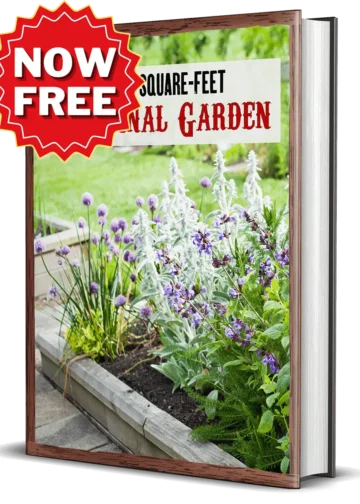
Now FREE with The Lost Frontier Handbook
The apigenin in chamomile is a natural antioxidant that binds to receptors in the brain in a way that helps reduce anxiety and promote sleep. This can be very helpful if you or someone in your group has insomnia issues. It can even help with stress management during a crisis.
Chamomile also has antispasmodic and anti-inflammatory properties that soothe the digestive tract, easing indigestion, gas, and stomach cramps. It can be very helpful for someone dealing with IBS or gastrointestinal discomfort.
It’s also worth noting that chamomile has anti-inflammatory and antimicrobial properties that make it useful for treating skin issues like eczema, scrapes, and minor burns. You can do this by creating a chamomile paste, or directly applying chamomile under a soft, dry bandage.
Chamomile Growing Tip
Chamomile can be grown in most temperate climate herb gardens. However, to get a proper harvest in growing zone 5B and colder, it’s best to start the plants from seed 4 to 6 weeks before the average last frost date for your region.
You can then transplant chamomile seedlings outside after all fear of frost is over. This will give them the full growing season to flower and develop to maximum potency.
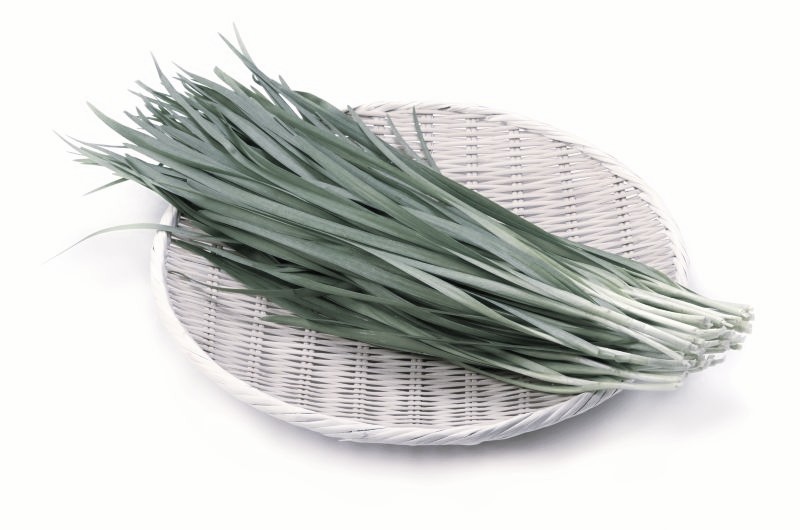 Garlic
Garlic
One of the great things about garlic is that you can grow it as a medicinal herb to be prepared for a crisis, and then use it in the kitchen when a crisis doesn’t strike. Its therapeutic properties can help treat infections, provide antioxidant properties, and can even help with heart health issues.
Garlic is high in compounds like allicin, which have antibacterial, antiviral, and antifungal properties. It can also boost immune function and combat illnesses such as the common cold and flu.
New research has found that regular consumption of garlic can slightly lower blood pressure, reduce cholesterol levels, and improve blood circulation. This makes it useful for supporting cardiovascular health.
Garlic also helps stimulate digestive enzymes, which promotes healthy digestion and maximizes the absorption of key nutrients. This is particularly helpful in a crisis when you might be subsisting on less-than-optimal food sources and need to capture every nutrient possible.
Garlic Growing Tip
In northern climes, you want to plant garlic in late summer to early fall. This will give the bulbs time to set strong roots. Then cover the planting bed with a thick layer of leaves or mulch to protect it from excessive freezing damage in the winter.
As soon as the ground starts to thaw in the spring, you simply remove the mulch layer. The garlic will come up on its own and is hardy enough to resist spring frosts. This strategy maximizes each garlic cluster’s growing potential throughout the growing season.
Final Thoughts
Some medicinal herbs, like peppermint, chamomile, garlic, and echinacea, are easy to grow and have on hand in case of a crisis. You can grow them year after year, preserving them for later use. You can even save the seeds to ensure the sustainability of your medicinal herb garden. If you cannot do that, you can always use the medicinal garden kit to create your own natural pharmacy in your backyard.
Other medicinal herbs, like ginger and turmeric, can be more challenging to keep on hand in case of a crisis. In northern climes, you typically need to grow them in containers and bring them indoors to live in a sunny window after the growing season ends.
It’s important to note that while these medicinal herbs can help treat many conditions and treat symptoms, they can’t completely replace prescription medications.
You may also like:
20 Medicinal Herbs Every Prepper Must Grow
The U.S. Army’s Forgotten Food Miracle (Video)

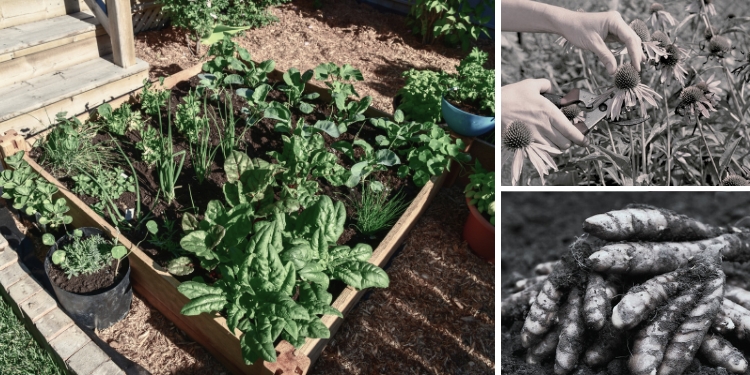
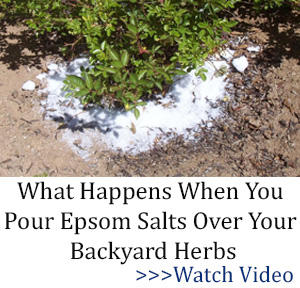






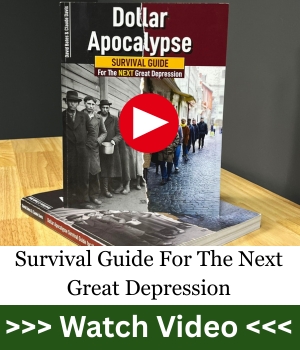













Thanks for all the helpful information
Taking expired meds are not necessarily deadly. I worked in a medical clinic for over 10 years. Always do your own research. Meds get slightly less potent the longer you keep them. This site has spewed some fear porn, but has great information if you can wade through it.
I mean, they did say dangerous, not deadly. If you take expired antibiotics that are less potent, you might not treat your infection, and get other problems after.